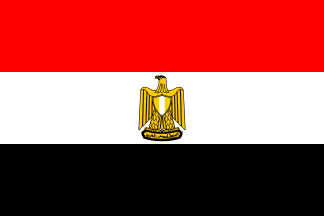Doaa's Story
So Bassem paid his life savings to smugglers, $2,500 each, to get them onto an old fishing boat. It was so packed with people that Doaa’s knees were bent to her chest.
After two days at sea she started to get worried, and on the third day she told Bassem: “We will never reach the shore. We will all sink.”
On day four, another boat approached the vessel. It was rusty and when the passengers were ordered to get on, they refused. The smugglers left angrily, and then returned to ram a hole in the side of the hull. “Let the fish eat your flesh,” they shouted, and then they laughed. Within minutes, the boat capsized and sank, with 300 people trapped below deck.
“The sea went black,” said Doaa. “I heard people screaming, and water crashing. I felt like I was going to drown.” She watched the propeller cut a child to pieces. Miraculously, Bassem found a water ring. He held Doaa’s hand and treaded water. There were corpses everywhere. The 100 survivors came together in small groups and prayed for rescue.
Doaa is a 19-year-old aspiring student who was forced by the war to live a grinding existence with her family in exile.
Without a work permit in Egypt, Doaa struggled through day shifts for low wages. As the months passed, she was getting more and more scared. One day, a motorcycle gang tried to kidnap her on the street. The war in Syria that drove her family away was in its fourth year. And the people who once welcomed them in Egypt had become weary of them.
Despite all this, Doaa still had hope, because she was in love with another refugee, called Bassem. He promised to take her to safety in Europe where they would marry and build a new life. Doaa knew the risks. It was August 2014, and more than 2,000 migrants and refugees had already died crossing the Mediterranean that year. She didn’t know how to swim, but for the second time in her life, she felt she had no choice but to flee.



But as day turned to night and to day again, many lost hope. Doaa watched as men took off their life vests and drowned. Sensing his end was near, a Palestinian approached with his nine-month-old granddaughter, Malek. “Please take the baby,” he said. “I am very tired.” Then he gave up and let the sea take his life.
Soon after, Bassem had also reached his limit. His last words were, “I am sorry my love. Please forgive me.” He drowned before her eyes. Later that day, a mother struggled towards Doaa with Masa, an 18-month-old girl. “Save her,” she said, “I will not survive.”
Doaa, the 19-year-old who could not swim, who had just watched her fiancé drown, was now in charge of saving two fledgling lives. They were crying, agitated, hungry and thirsty. So she told them stories and played with them. Another day passed, and then another. On the fourth day in the sea, Doaa saw a merchant boat. For two hours she shouted. They spotted her with search lights in the dark and extended a rope – astonished to find a young woman clutching two babies.
Malek died in the boat’s clinic, but Masa pulled through. Doaa’s heroism was praised in the Greek media. On 19 December, one of Greece’s most respected institutions, the Academy of Athens, gave her an award for bravery.
This year, her story has become more relevant than ever. More than 130,000 refugees and migrants have crossed the Mediterranean to seek safety and a better life in Europe, and tens of thousands died along the way. Across the EU, people are waking up to the tragedy unfolding on their shores. Some are responding with compassion, but far too many with xenophobia.


